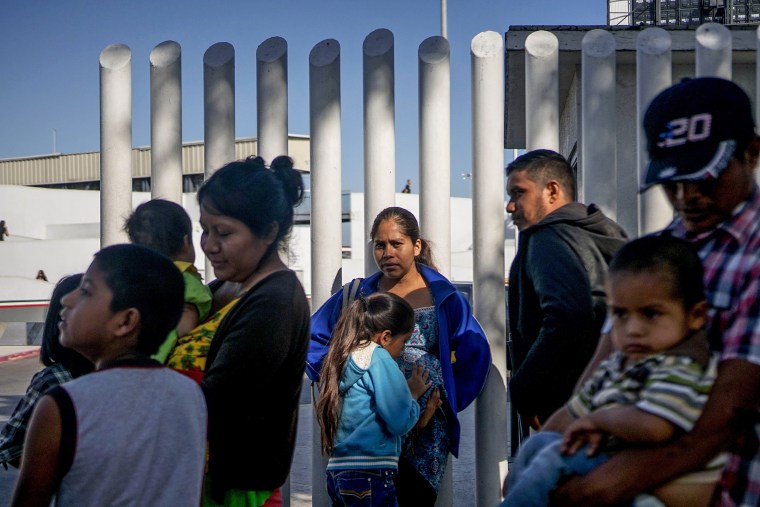The Trump administration signed an asylum agreement with Honduras that could force asylum-seekers to seek protection in one of the most dangerous countries in the world instead of the United States, the latest agreement with a Central American country aimed at curbing migration at the southern border.
The U.S. signed the asylum agreement with Honduras’ foreign minister of affairs, a senior official with the Department of Homeland Security said during a news teleconference Wednesday afternoon.
The accord would allow the U.S. to send asylum-seekers from the southern border to Honduras to seek relief in a country with one of the highest murder rates in the world.
Acting Secretary of Homeland Security Kevin McAleenan signed the deal during the United Nations General Assembly in New York, according to the DHS.
The deal comes after Honduran President Juan Orlando Hernández was targeted by U.S. prosecutors in a major drug trafficking case in August.
The official, who spoke on condition he not be identified, said Wednesday’s agreement was parallel to the one signed last week with El Salvador and another previously signed with Guatemala. Details on the implementation of the agreements have remained vague and none have gone into effect yet.
Mexico has refused to sign such a deal, although the Trump administration has said it may return migrants who pass through any country where they could claim asylum. The Supreme Court recently ruled the administration can go forward with this policy while the issue plays out in lower courts.
The DHS official said that through the agreements, migrants seeking asylum in the U.S. who are in the region and had an opportunity to seek protection in one of those Central American countries will be returned from the U.S. border to seek relief in those countries.
When a migrant arrives at the southern border seeking protection, "they will be given the opportunity to first seek protection in one of those three countries," the official said.
The official said the agreements were intended to help increase asylum and protection capacity in Central America, slow migration and enhance security in the region.
Critics of the agreements have said migrants are already fleeing tremendous violence in those Central American countries and keeping them there could further endanger them, as well as keep out those with valid asylum claims. They have also said the countries do not have the capacity in their asylum systems to take on the migrants’ claims.
Michelle Brané, director of migrant rights and justice at the Women's Refugee Commission, said on Twitter McAleenan and Trump were "continuing to undermine human rights and endanger thousands of families, women, men, and children."
"Honduras is one of the most dangerous countries in the world," she said. "It is the opposite of what we are supposed to stand for."

